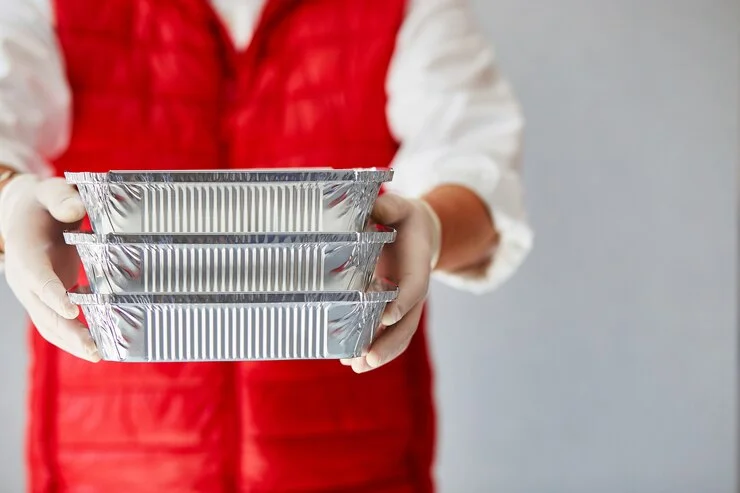Sustainability has become a keystone in the conversation about our environmental impact and the ways in which our lifestyle choices can either promote longevity or contribute to waste and pollution. Within this evolving discourse, the focus on sustainable packaging is intensifying. Consumers and manufacturers alike are seeking ways to reduce their ecological footprint without compromising the quality and safety of their products. As we delve into this discussion, one product stands out for its multifaceted use in sustainable food storage: aluminium foil.
Aluminium Foil: A Versatile and Sustainable Packaging Solution
Aluminium foil is a material that is widely respected for its strength, impermeability, and formability. Its unique combination of characteristics makes it an excellent barrier against light, moisture, and temperature extremes, which are critical in preserving the freshness of food products. As a sustainable packaging solution, aluminium foil’s durability and recyclability present a significant advantage for conscientious consumers and brands.
When discussing the sustainability of aluminium foil, it is important to mention its life cycle. Aluminium is a highly recyclable material, which means that it can be reused numerous times without losing its quality. This characteristic ensures that when foil is disposed of correctly, it can continue to form part of a circular economy—a keystone in sustainability efforts.
Reducing the Carbon Footprint with Aluminium Foil
The production and refinement processes behind aluminium have undergone significant optimisation over the years. Producers are now more energy-efficient, often using renewable energy sources, which substantially reduce the carbon footprint associated with its manufacture. As a result, when the full life cycle of aluminium foil is considered, its environmental impact is significantly lower than many disposable or single-use packaging options.
Moreover, the light weight of aluminium foil contributes to lower transportation costs and associated emissions. Since it is compact and mouldable, it can be efficiently packed and shipped, providing an eco-friendlier alternative to heavier packaging options that consume more fuel in transit.
The Role of Aluminium Foil in Food Safety
Beyond its environmental benefits, aluminium foil plays an essential role in food safety. It protects food products from bacteria and contaminants which can be a concern with some other types of packaging materials. Its non-toxic nature ensures that it can safely come into contact with food without altering its taste or composition. In the food industry, where hygiene and safety are paramount, aluminium foil’s properties make it an indispensable resource.
Cost-Effective and User-Friendly
One cannot overlook the cost-effectiveness of aluminium foil in the context of sustainable packaging. It offers food manufacturers and consumers a user-friendly, affordable option that aligns with budget constraints without sacrificing quality. Usability also stretches into foil’s versatile applications, from wrapping sandwiches and baking to grilling and food storage.
With convenience being a critical factor for consumers today, aluminium foil is available in a range of sizes and can be easily moulded to fit numerous shapes. Its ability to withstand high temperatures and transfer heat evenly makes it a favoured choice in kitchens both domestic and professional.
Innovation in Aluminium Foil Packaging
Continuous innovation is key in pushing sustainability within the realm of packaging. Manufacturers are exploring ways to make aluminium foil even more sustainable by reducing the thickness without impacting performance, thus requiring less material to produce the same output. Research is also honing in on coating technologies that enhance foil’s protective qualities, reducing the need for multiple layers of packaging and promoting minimalism.
Demand for environmentally respectful packaging is also a driver for change. Consumers are beginning to demand recyclability and environmental friendliness in their product choices. The food storage industry is listening and responding by advancing how aluminium foil is used and recycled.
Challenges and Considerations
Despite the clear advantages, there are challenges and considerations with aluminium foil that must be addressed. Public education and waste management systems play a crucial role in ensuring that this resource is recycled properly. Improper disposal can lead to the material ending up in a landfill where it does not decompose, negating its sustainability benefits.
There are also questions about the mining process for aluminium and the associated environmental and social impacts. It is therefore essential for companies to source their aluminium responsibly and ensure that they support mining practices that are as sustainable and ethical as possible.
Conclusion: Aluminium Foil for a Sustainable Future
In conclusion, aluminium foil stands out as a material that offers a promising pathway toward sustainable packaging solutions. Its durability, recyclability, and role in maintaining food safety make it an ally in the global quest to reduce our environmental impact. As we progress into a future where responsible consumption is paramount, embracing aluminium foil provides a practical, cost-effective means of doing so without compromising on quality or efficiency.
By integrating aluminium foil into our food storage solutions and supporting responsible manufacturing and recycling practices, we can support a circular economy. This collaboration between consumers, businesses, and waste management facilities is critical in paving the way towards a more sustainable and environmentally aware society.
Through continuous innovation and responsible use, aluminium foils can play a vital role in the future of food storage and packaging, offering a balance between utility, cost-effectiveness, and environmental stewardship. Embracing this material, therefore, is not just about choosing a packaging option—it’s about making a commitment to a healthier planet and a more sustainable future for all.







